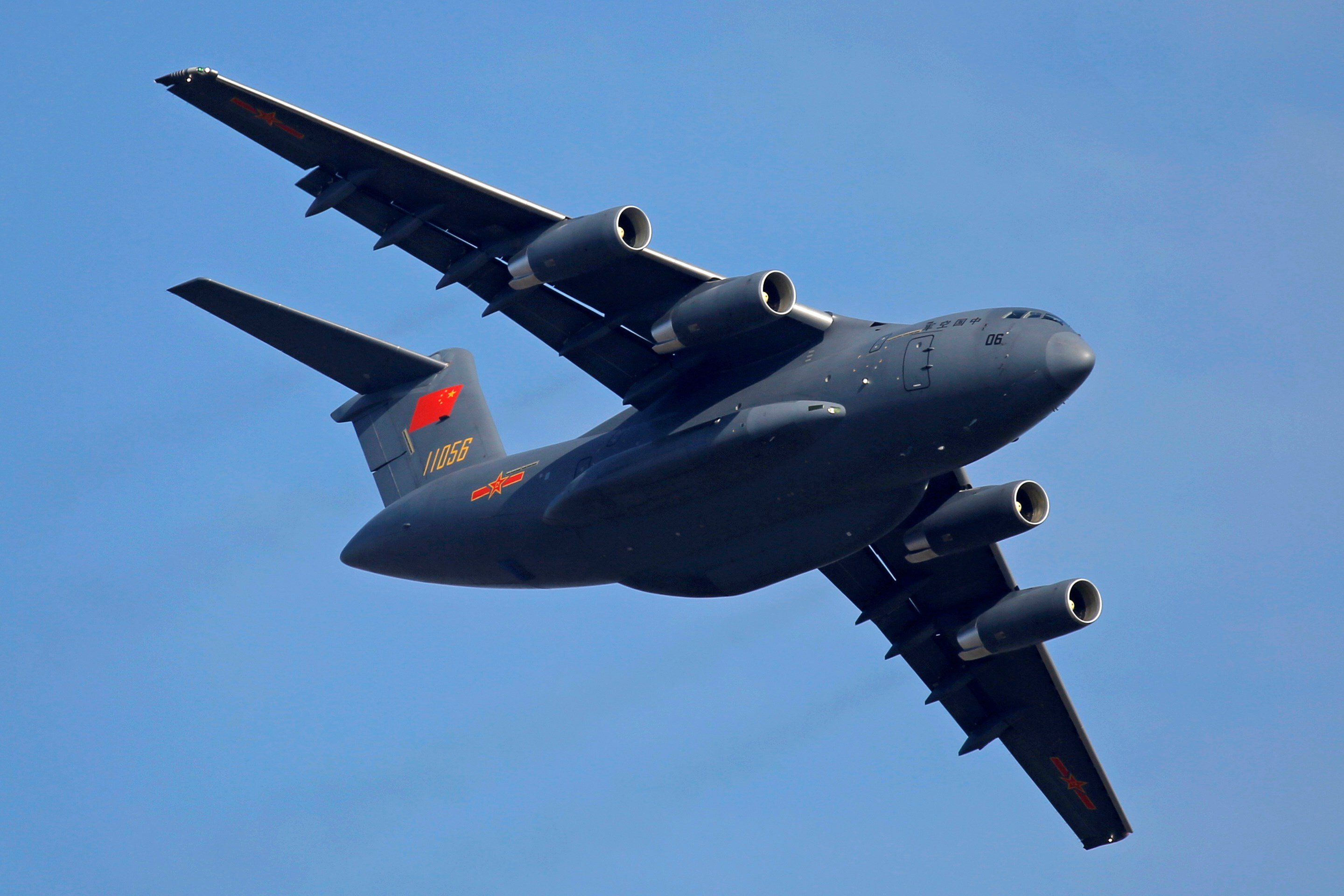China, Thailand conduct 'Falcon Strike' drill amid US tensions
China begins military drills with Thailand under the name of "Falcon Strike" to strengthen their alliance, as the US prepares its own drills with Indonesia following the Pelosi visit.
-

A Y-20 transport aircraft of the Chinese People's Liberation Army (PLA) Air Force performs during the 12th China International Aviation and Aerospace Exhibition, also known as Airshow China 2018, in Zhuhai city, south China's Guangdong province, Wednesday, Nov. 7, 2018 (AP Photo/Kin Cheung)
Thailand and China kicked off their first joint air force exercise on Sunday as Thai-Chinese air force drills were regularly held since 2015 but had to pause when the pandemic hit in 2020.
Precautionary measures
Labeled "Falcon Strike", the exercise follows China's largest-yet military drills around Taiwan, as a precautionary measure in retaliation to US House Speaker Nancy Pelosi's visit to the island. The controversial visit was advised against, by both the US military and Chinese officials, and resulted in heightened tensions between the trio: China, Taiwan, and the US.
Interestingly, the visit came at a time of rising tensions between Beijing and Washington over Taiwan, and it marked the first visit made by a US House Speaker to the island since 1997, causing concern across the globe.
Thai Air Chief Marshall Prapas Sornchaidee stated that "Falcon Strike" that's running for 10 days in the northeast of the country, was meant to fortify relations and mutual understanding with China. The drill will consist of fighter jets, bombers, and airborne early-warning (AEW) planes according to the defense ministry in Beijing last week. It also noted that the drills will comprise of training for "air support, strikes on ground targets, and small- and large-scale troop deployment".
Arm deal may be pushed back
Washington expressed increased concern over China's assertiveness and presence in the Pacific region and consequently launched the "Super Garuda Shield" exercise in Indonesia with its allies last week, which involved around 2,100 Indonesian military troops and 1,500 US army soldiers.
Thailand aimed to strengthen its alliance with China and was among the first to buy Chinese naval hardware under a deal signed back in 2017.
In 2020, however, a subsequent deal in the amount of $724 million for two Chinese-made submarines was postponed following a public outcry. Further friction over the vessels' engines may see the delivery pushed back as far as 2024, according to a report by local media this month.

 2 Min Read
2 Min Read










